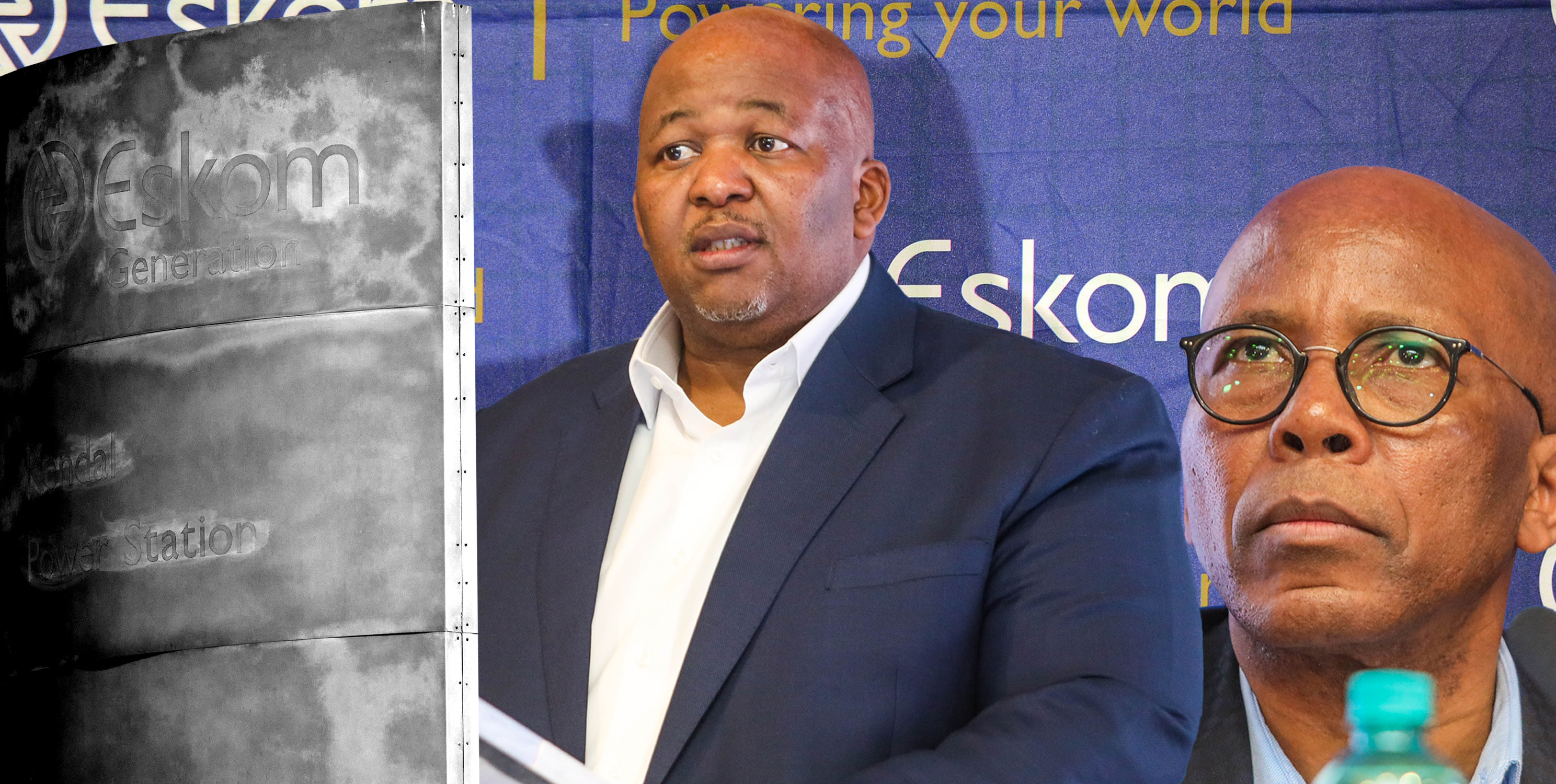
So much happens in our country so quickly that I think we almost forget to pay attention when anyone does something good, something that’s positive for all of us.
I mean, in the past few days you have been assailed by headlines from the Madlanga Commission, the incredible corruption at Tembisa Hospital, the detention by the Israelis of our people off the coast of Gaza, while Danny Jordaan is once again unable to admit that he messed up. And I haven’t even mentioned that guy who takes up more airtime than literally anyone else in history right now.
Considering all of that, it was a minor miracle that I was able to use Aarto’s website to update my car licence disc (I promise to update you if and when it arrives).
And because so much is happening, we don’t always stop and applaud those who have fixed big problems. They don’t even get that most important award they deserve: a jolly good handshake.
I think that has happened at Eskom. It’s a pity because the people who got us out of our worst governance mistake deserve more than they’ve received.
This week Eskom confirmed it had made a profit and, more importantly, pretty much kept the lights on all of last year. If you consider where we were before that – day after day of Stage Six load shedding – this is huge progress.
Read more: Eskom posts first profit in eight years, of R16-billion, as turnaround gains traction
The current group CEO, Dan Marokane, chairperson Mteto Nyati and so many others all deserve jolly good handshakes.
My chat with Marokane on The Money Show this week about the current situation and how Eskom ended up where it did, was quite interesting, to say the least.
He said: “What we need to do going forward is ensure that we do not ever go back to a point where, because of money scarcity, we are unable to execute the maintenance programmes when they are due. This is fundamentally what brought the business to the state that it was in.”
Now, while I don’t think he means it in this way, I have to wonder what it means for Brian Molefe. He was the person that Jacob Zuma and Lynne Brown and all of the other State Capture people wanted at Eskom. And we all know why – it was about corruption. Money, to use another word.
Mteto and Marokane and the people running the show have shown us what can be done when you have good people in the right positions, and let them get on with it.
I have to say, though, I still don’t want their jobs. Eskom has so many difficult problems ahead of it. For a start, the next big fight in our society (once we’re done with Helen Zille and Joburg and Malema’s conviction and all the rest) will be about electricity prices.
The regulator, Nersa, has confirmed it is launching a full review of how electricity tariffs are calculated.
Now, when I first heard that, I thought this would do nothing good. I mean, physics doesn’t care for politics, and the price of generation and distribution is the price.
But I think Marokane has put me right. He says: “What we need is a tariff determination environment that talks to the reforms we are all embracing. The current tariff methodology is predicated on a set-up that is now outdated.”
He’s obviously correct. So much has changed, and continues to change, in our electricity environment that the way in which we pay for it needs to change too.
But we shouldn’t assume that this process automatically ends with prices being lower, or that the rate of electricity inflation will come down. It’s just too soon to know.
However, I do know that if prices don’t stop going up in the way that they are, there will be a rebellion. With power prices like these, the incentive to find a way to get electricity illegally, or through means other than Eskom, has probably never been higher.
And while the government has promised many times that there will be a campaign to get rid of illegal connections, it seems it is making very little progress.
To be sustainable in the future, Eskom needs many things to go right. The reforms to our electricity system need to make sense for the utility, and Nersa’s tariff review process needs to make sure that tariffs are sensible – people need to be able to afford electricity from Eskom.
But there is something else Eskom’s leadership, and everyone else who works there, needs right now: a jolly good handshake.
So, if you know someone from Eskom, if you bump into them in the licence disc queue, remember what you can do for them. And make that handshake count. DM




 Illustrative image: Eskom generation board. (Photo: Gallo Images / Waldo Swiegers) | Eskom CEO Dan Marokane. (Photo: Gallo Images / Sharon Seretlo) | Eskom chairperson Mteto Nyati. (Photo: Gallo Images / Sharon Seretlo)
Illustrative image: Eskom generation board. (Photo: Gallo Images / Waldo Swiegers) | Eskom CEO Dan Marokane. (Photo: Gallo Images / Sharon Seretlo) | Eskom chairperson Mteto Nyati. (Photo: Gallo Images / Sharon Seretlo)